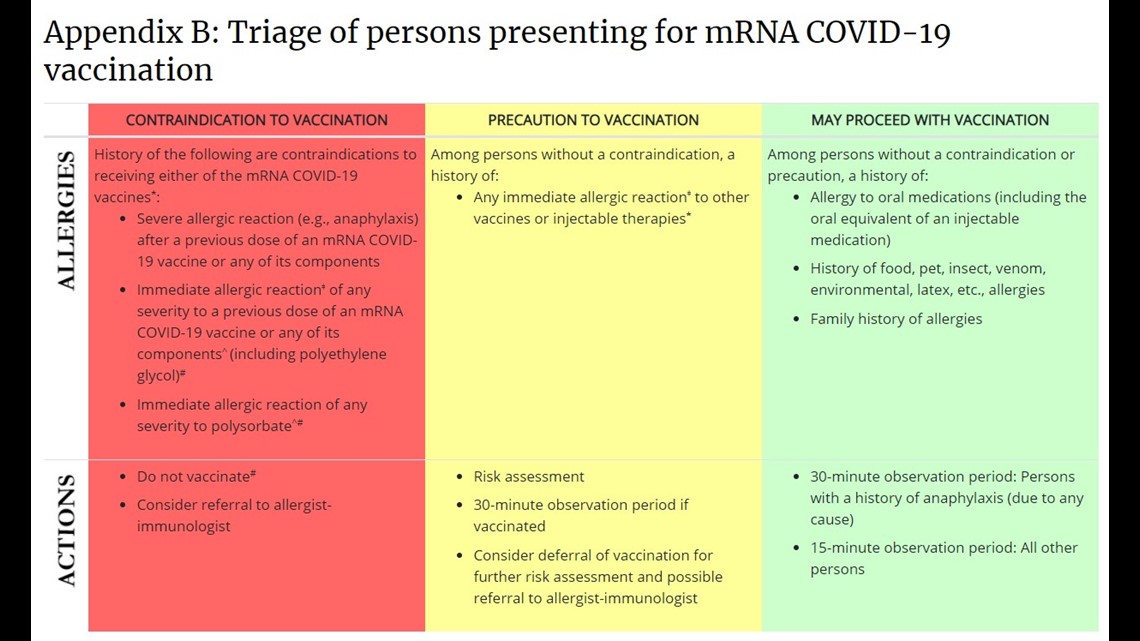CHARLOTTE, N.C. — The Centers for Disease Control says, while rare, there have been severe allergic reactions to the approved COVID-19 vaccines. Data shows for every million doses administered, there have been a handful of anaphylactic responses.
Rowan County resident Alan Blanding reached out to WCNC Charlotte, asking whether his allergy might be a concern when it is time for him to get the COVID-19 vaccine.
"I have had a swelling reaction to a pneumonia vaccine, and I wondered if I could expect the same reaction from the COVID vaccine," Blanding asked.
According to CDC guidance, with a prior reaction to another vaccine, Blanding would likely be in the "precaution" category, meaning he might not be able to get the shots, but he should consult with his doctor first and might need extra observation time after his shots if he does get them.
However, there are other allergies that might weigh more heavily against vaccination.
"For those who have had a severe anaphylactic reaction, there should be a significant amount of caution," Dr. Jerome Williams, Senior Vice President of Consumer Engagement for Novant Health, said.
According to CDC guidance (see chart below), anaphylaxis due to another mRNA vaccine could preclude someone from getting a COVID-19 shot.
While anaphylaxis from other causes might not necessarily do the same, it could mean someone needs a longer observation period.


"The other group we would want to caution is people who have any allergy to any of the components of any of the vaccine products," Rebecca Bean, Chief Pharmacy Officer at Novant Health, said.
According to the CDC, those people would likely be unable to get the shot but should consult with a doctor first.
The CDC notes neither vaccine has eggs, gelatin, latex, or preservatives. However, if someone is allergic to polyethylene glycol (PEG), a common additive in vaccines and injectables, or polysorbate, a related chemical, that could be a concern.
The final group, denoted in green in the above chart, includes people with food allergies, pet allergies, environmental allergies, allergies to insect bites or venom, and allergies to oral medication. This group is recommended to get the vaccine.
Have a relative or friend in another state and want to know when they can get vaccinated? Visit NBC News' Plan Your Vaccine site to find out about each state's vaccine rollout plan.

